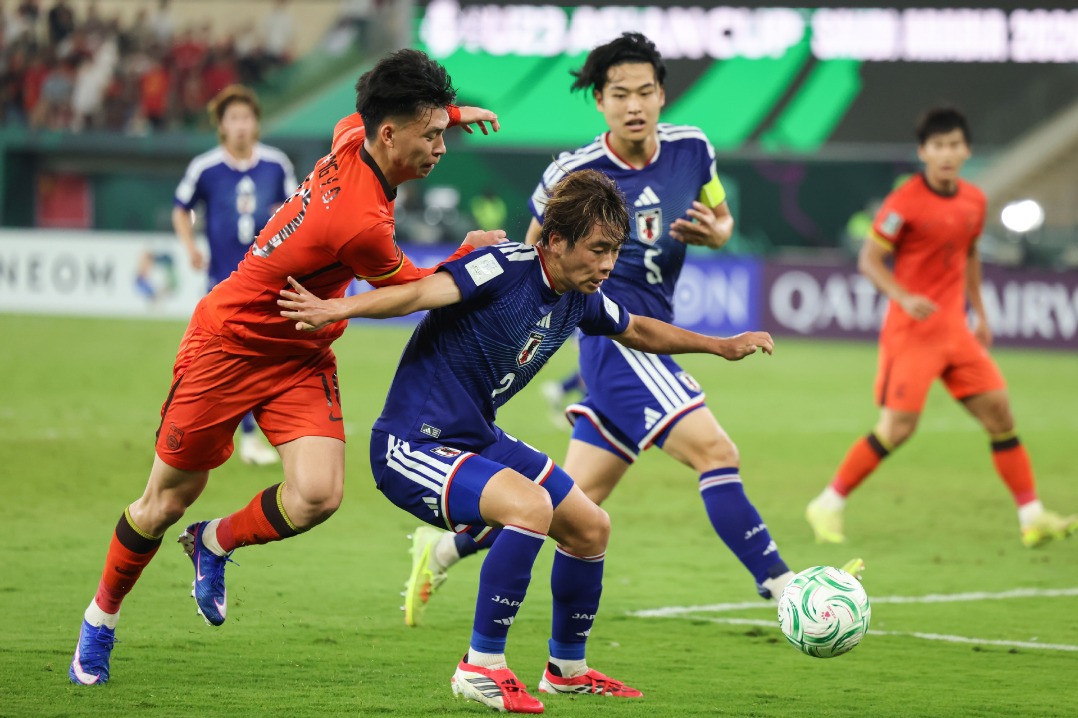Japan extends Women's Asia Cup reign

Japan won a fifth straight FIBA Women's Asia Cup and sixth overall in Amman, Jordan on Sunday after laboring to a 78-73 victory over China in the final.
Just as in the previous two editions of the biennial tournament, Japan, China, Australia and South Korea occupied the semifinals spots to underline the dominance of the continent's 'big four'.
Less than two months after the Tokyo Olympics, many squads rested some of their key players.
Olympic silver medalist Japan switched their head coach and changed more than half of its roster, while Australia played with an entirely different squad in the Jordanian capital.
After finishing fifth at Tokyo 2020, China replaced Sun Mengran and Shao Ting with young guns Yang Hengyu and Li Yifan, while Li Meng was also absent.
But all the roster changes could not prevent those powerhouses from marching on. With 91- and 74-point victories over the Philippines and Chinese Taipei respectively in the first two group matches, China faced stiffer resistance from Australia before defeating the world No 3 team 82-64.
Japan routed India 136-46 in the tournament opener before wins over New Zealand and South Korea saw the defending champion cruise into the semifinals.
China dominated South Korea 93-69 in their semifinal, while Japan edged Australia 67-65.
All four semifinalists booked spots at the 2022 FIBA Women's Basketball World Cup Qualifying Tournament.
The Japanese displayed their renowned shooting touch in the final, while a suffocating defense forced China into 14 turnovers while conceding just five themselves. Frequently facing a double team from the Japanese, world-class centers Li Yueru and Han Xu were crucially shackled.
"The pressure is on China who can't fall short for a fifth consecutive time," read a FIBA preview of the final. "It's simply unthinkable that powerhouse China could go at least 13 years without winning a continental title, but that will be the scenario if they fall short here in Amman," the article continued.
That scenario indeed played out. Without the experience of Shao Ting and Li Meng, China failed to take care of the ball in the heat of battle and ultimately crumbled late in the game.
Team China head coach Xu Limin, however, took plenty of positives from the campaign.
"Despite today's loss, we can see the potential, development and hope for this team," said Xu.
"The experience that we gained from this match is priceless," said Huang Sijing, who top-scored for China with 18 points in the final and was named in the tournament's All-Star Five.
"We will remember this game to motivate us to fight hard for the 2024 Paris Olympics."
Xinhua

Today's Top News
- Finnish PM arrives in Beijing for official visit
- Beijing leads Chinese cities in number of registered AI models
- WHO chief says US reasons for withdrawal 'untrue'
- Xi congratulates Yoweri Museveni on re-election as president of Uganda
- Senior military officials under investigation
- Systematic approach sees return of clear waters to the Yangtze River






























